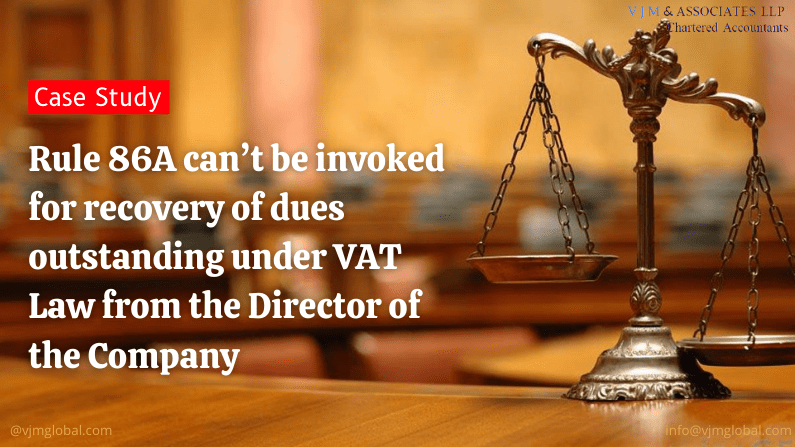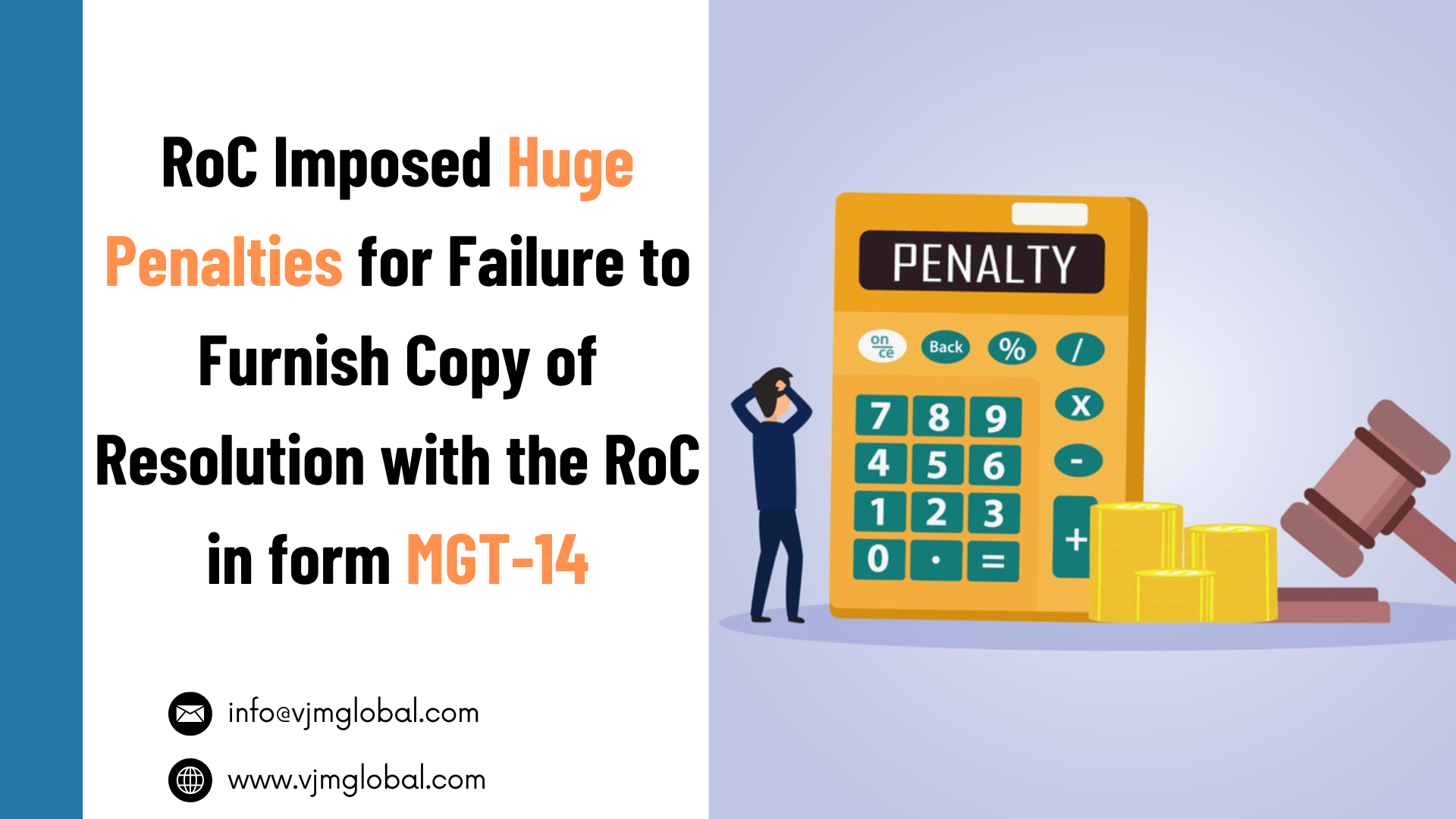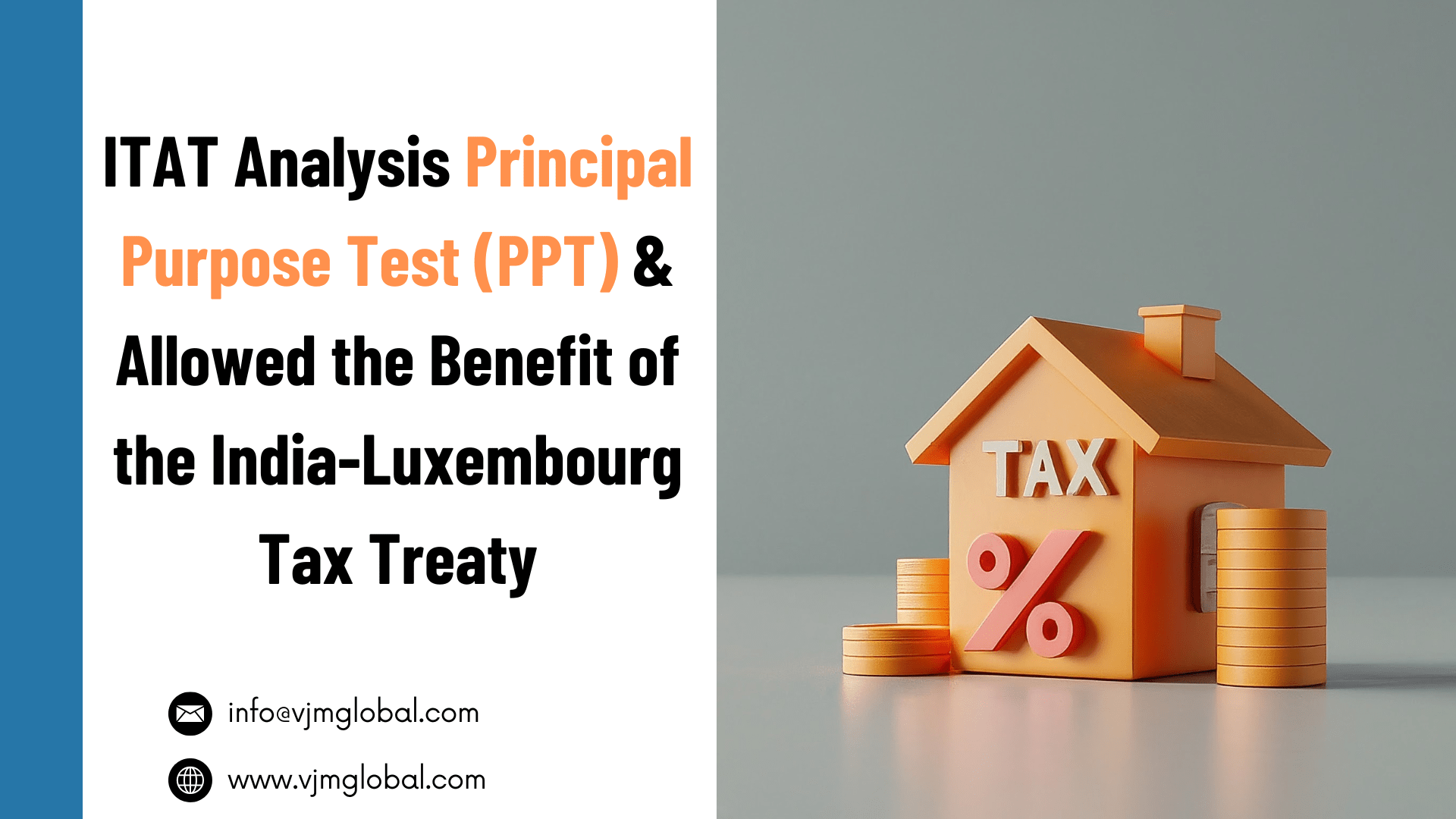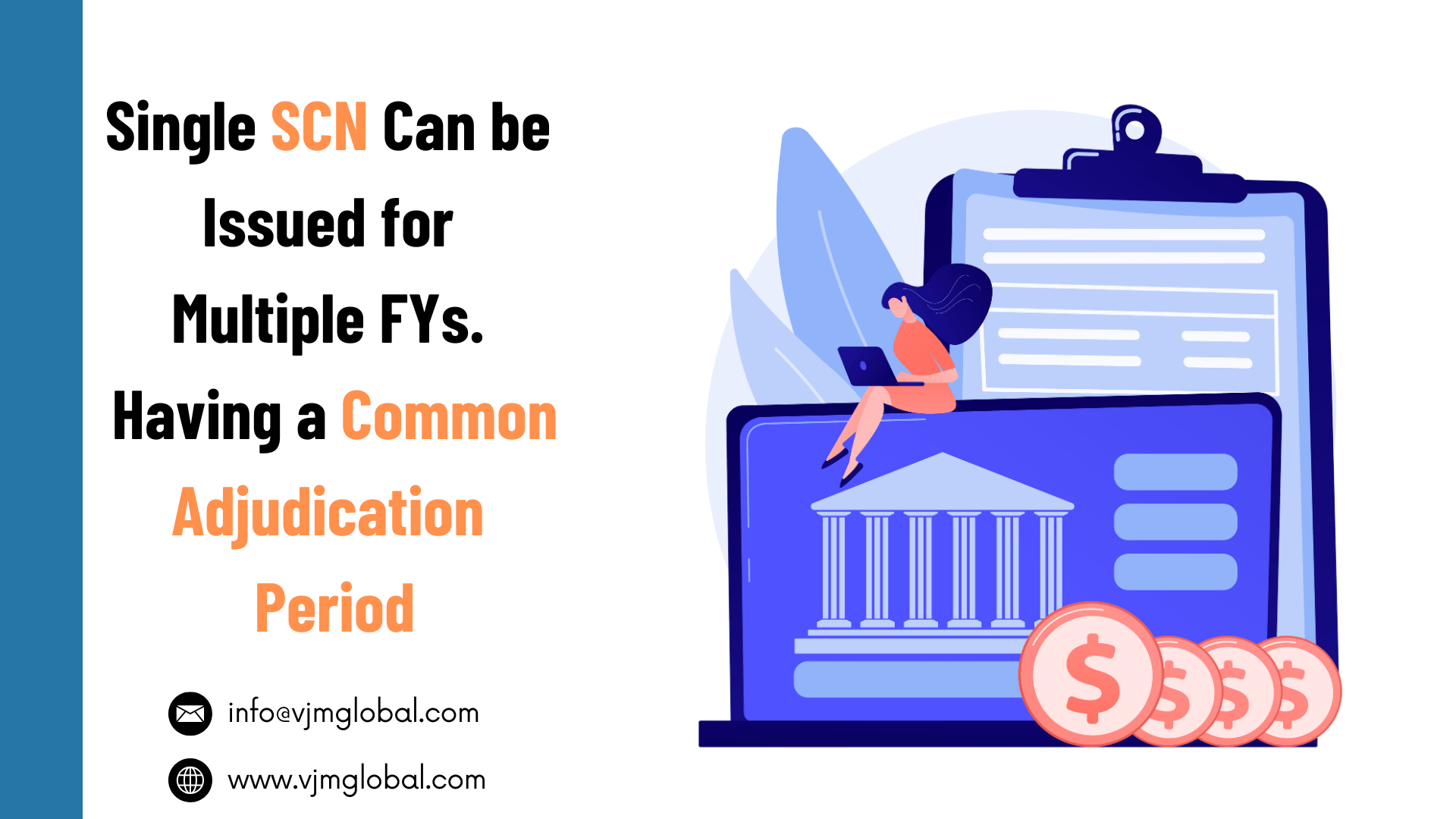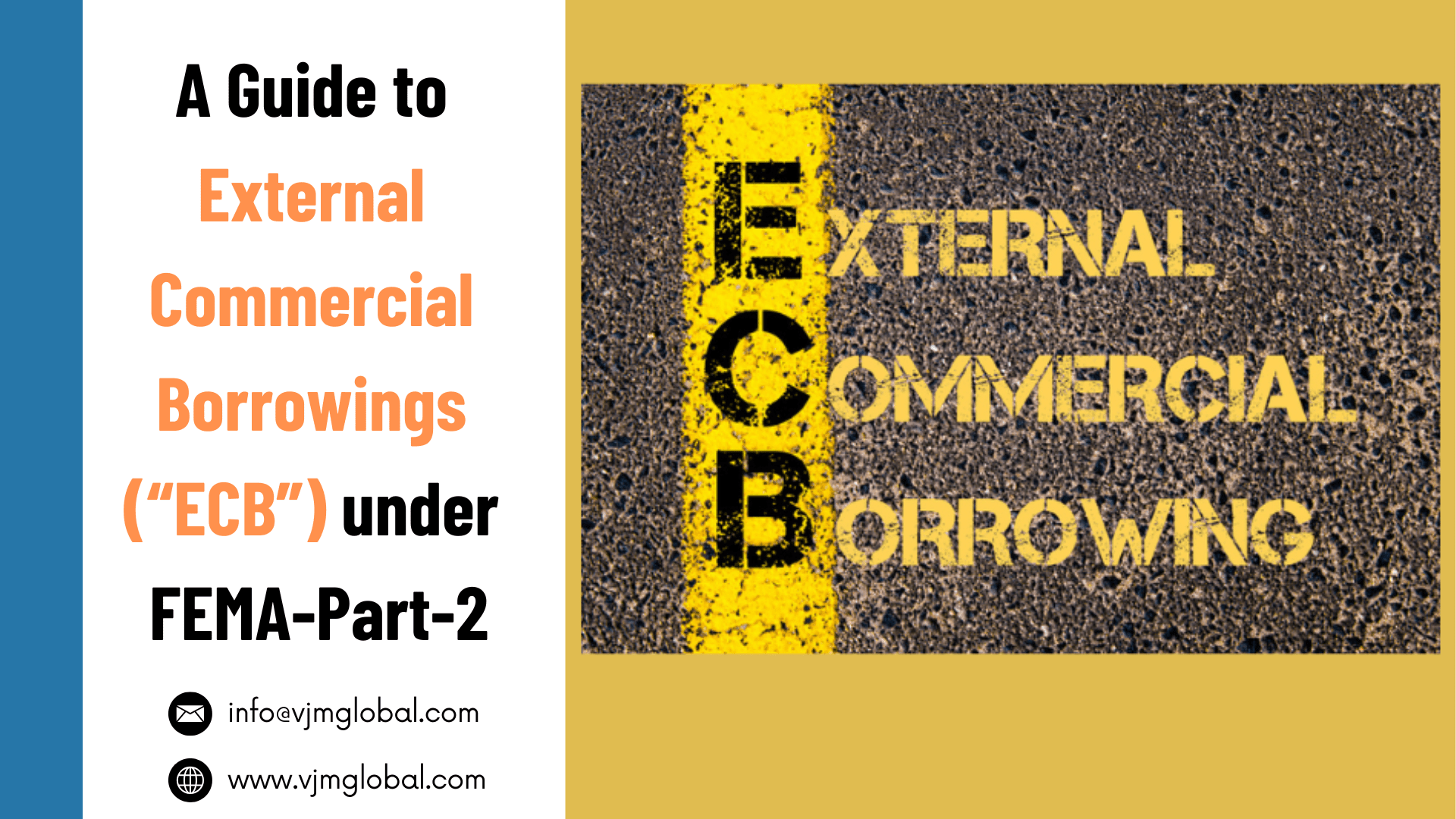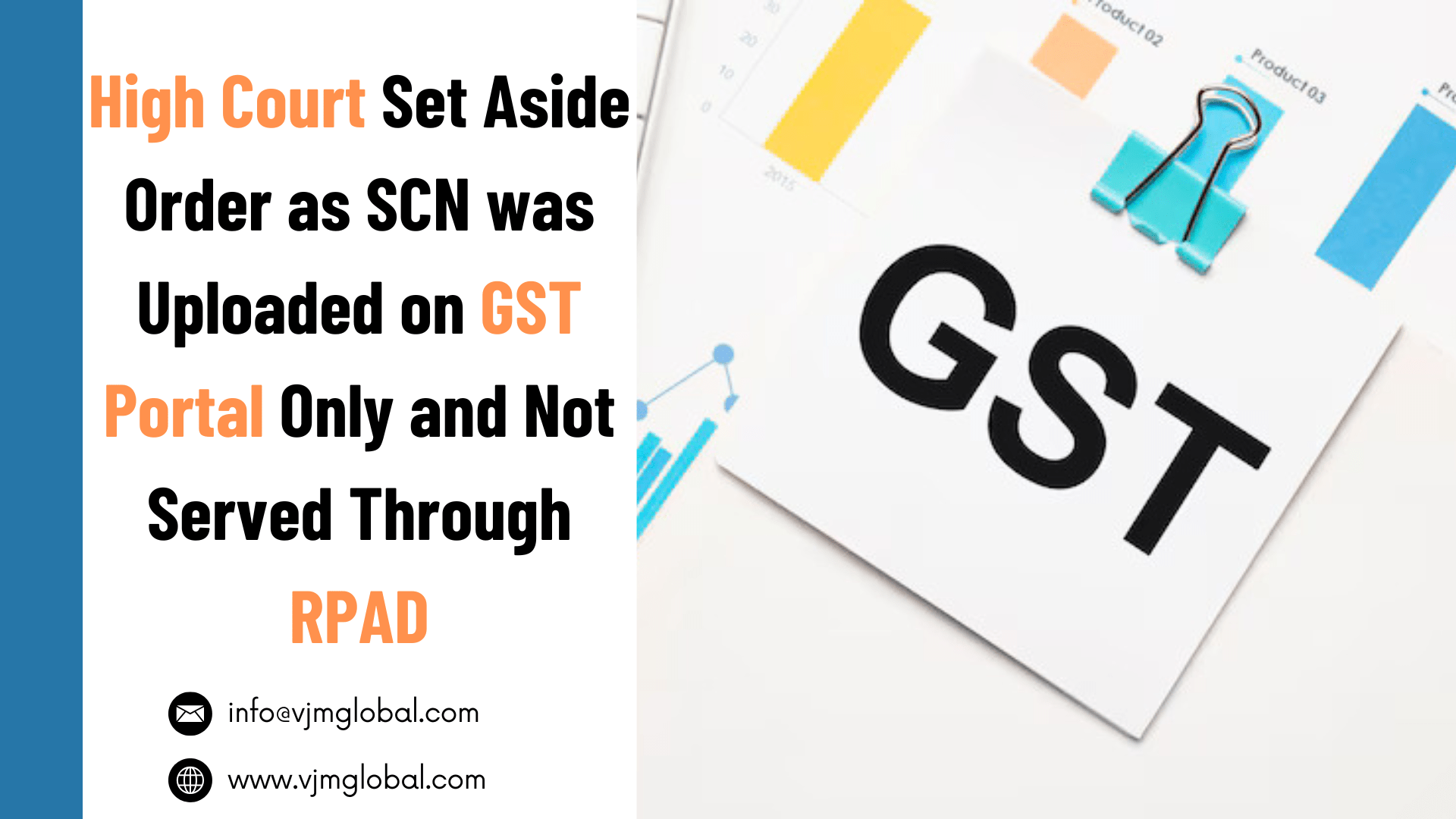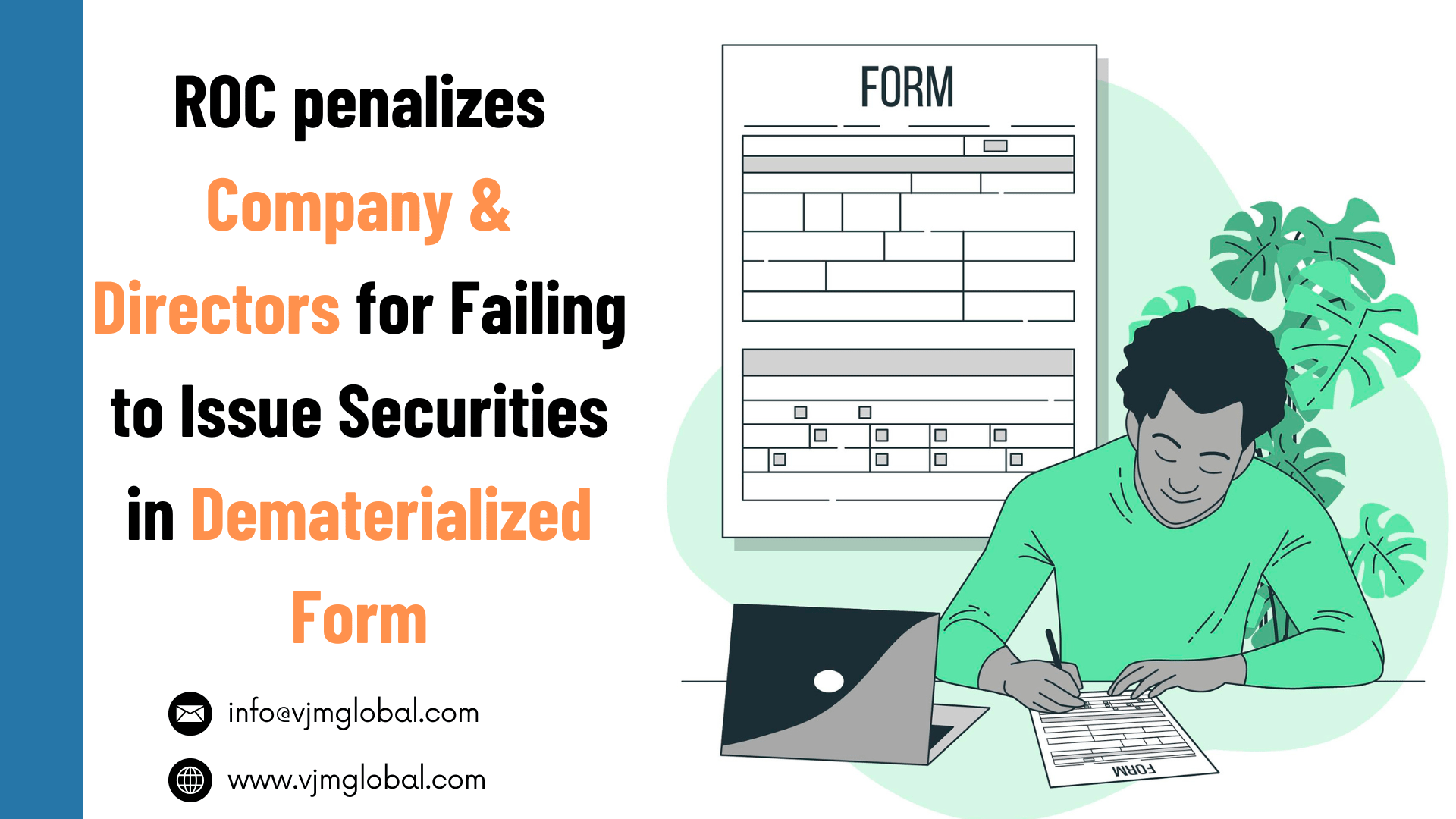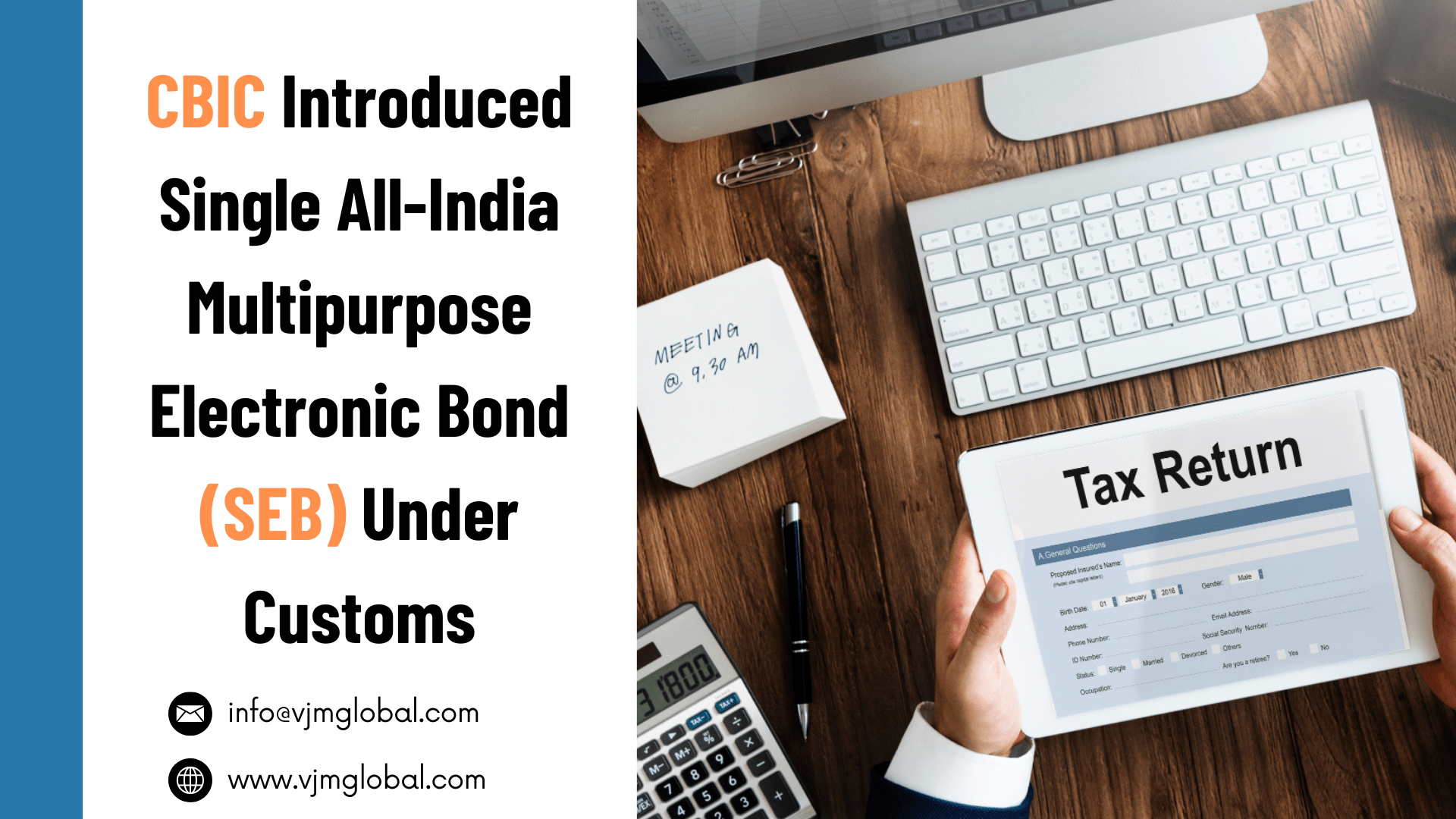In the matter of NIPUN A BHAGAT, PROPRIETOR OF STEEL KRAFT INDUSTRIES VERSUS STATE OF GUJARAT, (R/Special Civil Application No. 14931 of 2020), ITC of the writ applicant was blocked under Rule 86A of the CGST Act for recovery of dues outstanding under GVAT Act from the company in which writ applicant was a director.
Applicant contended that Rule 86A can be invoked only if Commissioner or an officer authorized by him has reasons to believe that the credit of input tax available in the electronic credit ledger has been fraudulently availed or is ineligible for the reasons stated in Rule 86A(1)(a) to (d). Further, there are no enabling provisions available that allow utilization of ITC under GST law for any tax payable under other law.
However, the respondent contended that recovery from the director can be done by virtue of Section 18 of CST Act, 1956. Further, ITC under GST law can be utilized for payment of GVAT by virtue of Section 49(3) read with Section 142(8)(a) of the CGST Act, 2017.
Hon’ble High Court held that Rule 86A can be invoked only if conditions given thereunder are fulfilled. Therefore, We fail to understand how Rule 86A could have been invoked in the present matter.
1. Brief Facts of the case
ITC blocked under Section 86A of the director for recovery of dues of the Company
- Nipun Bhagat Prop. Steel Kraft Industries (“The Writ Applicant”) is engaged in the business of manufacturing brand Kitchenware and home appliances and also registered under The CGST Act.
- The Applicant was a director in M/s Dolphin Metal (Private) Limited (“Company-1) since 23.11.2009 and also director in another company M/s Bhagat Marketing Private Limited (“Company-2) since 21st March, 1994.
- The respondent sent a notice to Bank of the Company-2, wherein the writ applicant is a director, under Section 44 of Gujarat VAT Act to attach bank account for recovery of dues outstanding from the Company-1 for the years 2006-07 to 2013-14.
- Bank declined the same due to mis-match of details provided.
- On the very same day, the respondent blocked the ITC available in the Electronic Credit ledger of the applicant of INR 17,94,723/- for recovery of taxes and interest of The Company-1 for the period during which the applicant was not even director of the Company-1.
- The Writ applicant filed an appeal before Hon’ble High Court challenging validity of action taken by the respondent.
2. Contention of the Applicant
Rule Section 86A can’t be invoked to discharge of tax liability under any other law.
The Writ Applicant contented:
- Blocking of ITC of the writ Applicant under the CGST Act is gross violation of the fundamental rights as enshrined under Articles 14 and 19(1)(g) of the Constitution.
- It is a settled position in the law that directors can’t be held personally liable for the dues of the Company and the same cannot be recovered from the Directors under any of the provisions of the GVAT Act.
- Enabling provisions are given under CGST Act (Section 89) and Income Tax Act (Section 179) to recover the dues of the company from its directors. However, no such provisions are given under GVAT Act.
- The Company-1 is a public limited company and therefore, its outstanding dues are not recoverable from its directors.
- Further, no provisions are given under CGST Act through which ITC accumulated under GST law can be utilised for payment of any taxes other than GST.
- In addition, Rule 86A of the CGST Act empowers the Commissioner to restrict the use of input tax credit from the electronic credit ledger if the Commissioner has reasons to believe that the ITC lying in electronic credit ledger has been fraudulently availed or is ineligible on the grounds as stated in Rule 86A (1)(a) to (d). Therefore, Rule 86A of the CGST doesn’t allow the debit of Electronic Credit Ledger on account of discharge of liability under any other law.
3. Contention of the Respondent
By Virtue of Section 49(3) read with Section 142(8)(a) of CGST Act, ITC can be utilised for payment of taxes due under any other law
Respondent contended:
- As per Section 18 of Central Sales Tax Act, 1956, if any private company is wound up and any tax assessed on the Company under CST Act, 1956 has not been recovered then every person who was a Director of such private company at any time during the period for which the tax is due would be jointly and severally liable for the payment of such tax unless he proves that non-recovery cannot be attributed to any gross neglect, misfeasance or breach of duty on his part in relation to the affairs of the Company.
- Further, as per Section 49(3) of the CGST Act, the amount available in the electronic cash ledger can be utilised for making any payment towards the tax, interest, penalty, fees or any other amount payable under the provisions of the CGST Act, 2017. Also, if any amount of tax, interest, fine or penalty becomes recoverable from the person in pursuant of any assessment or adjudication proceedings then the same is to be recovered as an arrear of tax under the Act, 2017.
- Therefore, Respondent was justified in blocking ITC of the writ applicant for recovery of dues of the Company-1
4. Legal Extract
The relevant legal extract is re-iterated below for ready reference:
- Rule 86A(1) of the CGST Rules:
- The Commissioner or an officer authorized by him in this behalf, not below the rank of an Assistant Commissioner, having reasons to believe that credit of input tax available in the electronic credit ledger has been fraudulently availed or is ineligible in as much as a) the credit of input tax has been availed on the strength of tax invoices or debit notes or any other document prescribed under rule 36-
- issued by a registered person who has been found non-existent or not to be conducting any business from any place for which registration has been obtained; or
- without receipt of goods or services or both; or
…..”
2. Section 142(8)(a)-Miscellaneous Transitional Provisions of the CGST Act, 2017: “
8(a) were in pursuance of an assessment or adjudication proceedings instituted, whether before, on or after the appointed day, under the existing law, any amount of tax, interest, fine or penalty becomes recoverable from the person, the same shall, unless recovered under the existing law, be recovered as an arrear of tax under this Act and the amount so recovered shall not be admissible as an input tax credit under this Act;”
3. Section 49(3) of the CGST Act for payment of Taxes:
“3) The amount available in the electronic cash ledger may be used for making any payment towards tax, interest, penalty, fees or any other amount payable under the provisions of this Act or the rules made thereunder in such manner and subject to such conditions and within such time as may be prescribed.”
5. Analysis by Hon’ble High Court
Rule 86A can be invoked only if conditions given there under are fulfilled
Hon’ble High Court has made the following analysis:
- Only question to be considered is whether the respondent had power to exercise Rule 86A of CGST Rules to block ITC of the writ applicant for the recovery of dues of the Company-1.
- Section 18 of the CST Act, 1956 is applicable only in case of Private Limited Companies and therefore, it is not applicable in the given case.
- Further, Rule 86A can be invoked only if conditions given therein are fulfilled, i.e, the Commissioner has reasons to believe that the credit of input tax available in the electronic credit ledger has been fraudulently availed or is ineligible for the reasons stated in Rule 86A(1)(a) to (d).
- Therefore, there is no justification available for how Rule 86A could have been invoked in the present matter.
The respondent is directed to unblock the input tax credit available in the credit ledger account of the writ applicant at the earliest.

